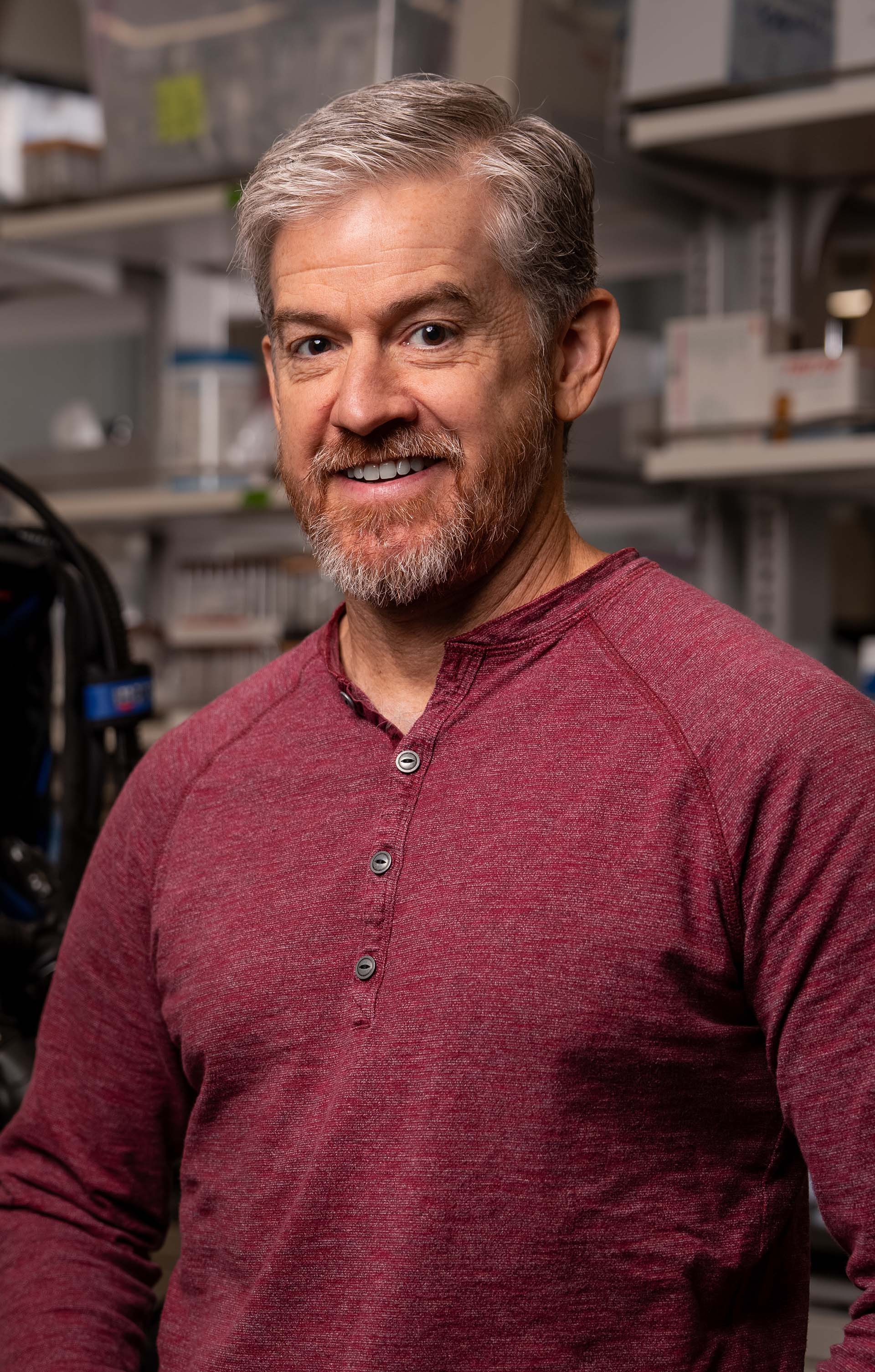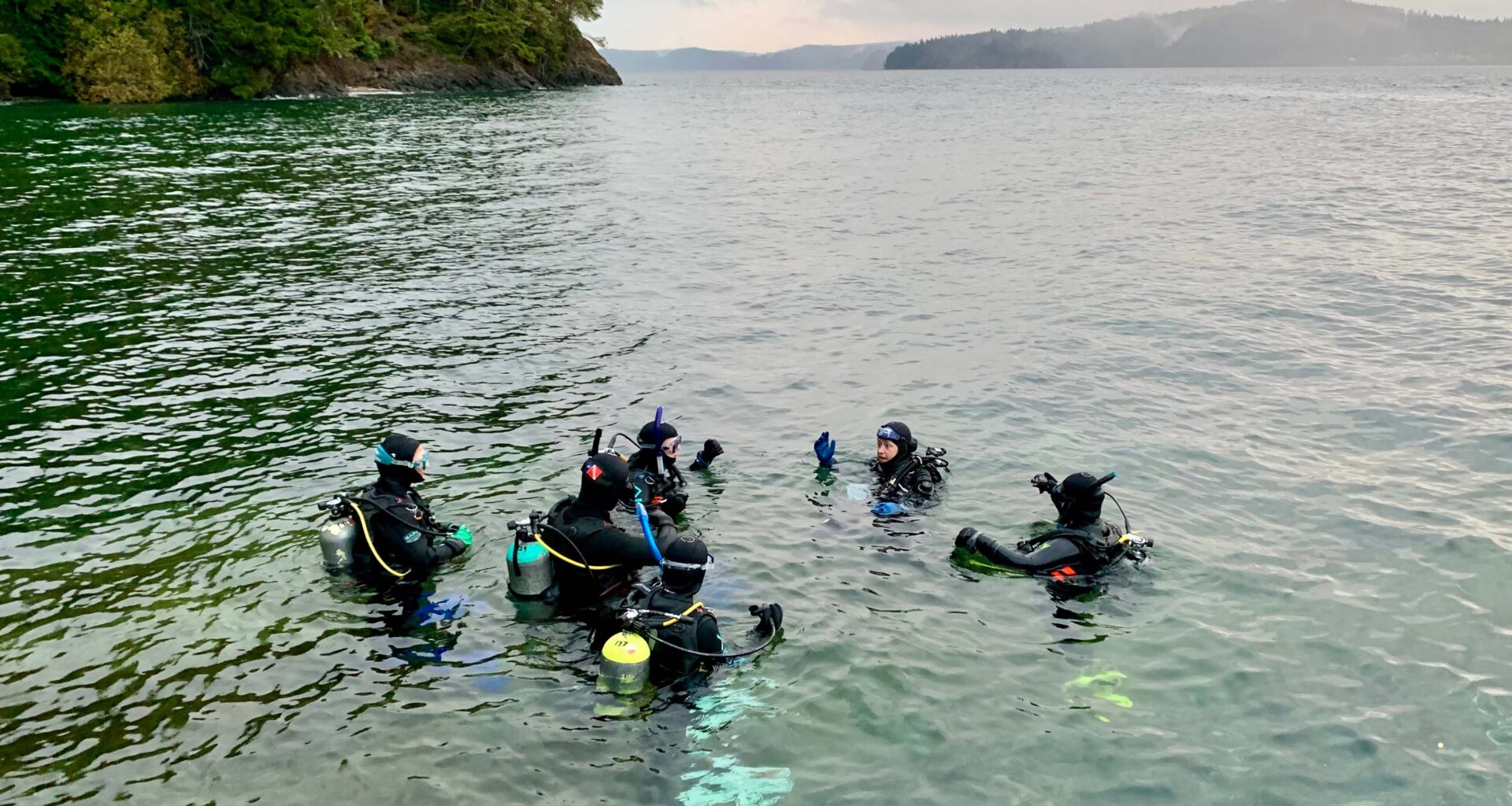That awareness stayed with him as he began his time at the UO, majoring in human physiology and searching for hands-on research opportunities that connected classroom theory and real people.
While still an undergraduate, Orman served in an uncommon role: as first author on a paper published Sept. 4 in the European Journal of Applied Physiology, looking at the factors that affect a scuba diver’s ability to maintain core body temperature.
Examining the influences of body type and sex on maintaining warmth in cold water using wet suits and dry suits, he became one of only two undergraduate students in professor Andrew Lovering‘s human physiology lab to design and manage a scientific study to completion.
 Andrew Lovering
Andrew Lovering
“This was entirely his project, which is why he is the first author,” Lovering said. “There are a lot of amazing undergrads at UO. But in my 19 years here, I’ve had only those two students who were strong enough to manage it all, write it up and look at peer reviews, the not-so-fun parts of science.”
Orman first connected with Lovering’s lab through persistence.
“He applied and let me know several times that he was interested,” Lovering said. “I hadn’t met him before, but he was very persistent, and that stood out. Once he joined, I didn’t have to do anything to motivate him. He motivated himself.”
The lab studies how the body responds to extreme environments, such as heat, cold, altitude and physical stress. For Orman, it was a natural fit.
“I’ve always had this high-level, aerobic background,” he said. “And I just did my first 100-mile bike ride. I love learning about how the body performs.”

